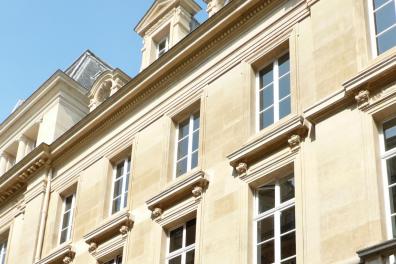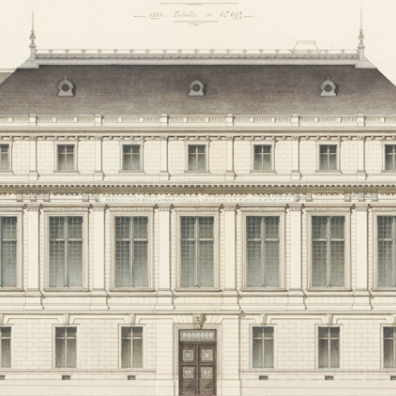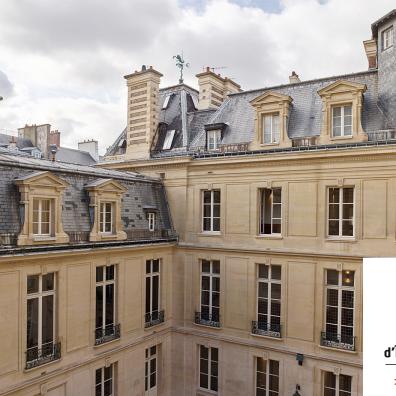The Maison de la Recherche
The historic Maison de la Recherche site is home to Inalco's research units, research and doctoral studies department, publications and administrative and financial engineering.

Please find the welcome booklet for the Maison de la Recherche website below.
Livret d'accueil Maison de la recherche (3.19 MB, .pdf)
Practical information
Address: Inalco - 2 rue de Lille, 75007 Paris
Telephone (reception): +33 (0)1 81 70 10 22
Opening times: 8:30am to 8:00pm Monday to Friday
Access
By metro:
- M1 - Palais-Royal - Musée du Louvre station
- M4 - Saint-Germain-des-Prés station
- M7 - Palais-Royal - Musée du Louvre station
- M12 - rue du Bac station
By bus: lines 27, 39, 68, 69, 87, 95 - stop Pont du Carrousel - Quai Voltaire
By RER: RER C - station Musée d'Orsay
The Maison de la Recherche, the historic headquarters of the École des Langues Orientales
L'école spéciale des langues orientales was established in 1874 in a mansion on the corner of Rue des Saints-Pères and Rue de Lille. Construction began in the mid-18th century and was completed in 1935.
The current building retains the entire north wing of the original 18th-century Hôtel de Bernage. The wings on rue des Saints Pères and rue de Lille are the result of the completion between 1886 and 1889 of the first phase of the major project imagined by Faure-Dujarric. The fourth and last wing, to the west, as well as the upper part of the library pavilion at 2 rue de Lille, belong to the last campaign of work initiated to complete this complex in 1935 by architect Paul Barrias.
The few transformations carried out since 1935 mainly concern interior fittings, or major building maintenance. A notable intervention was carried out in the 1970s, however, with the opening of a porte cochère, allowing firefighters to pass through in the middle of the front of the rue des Saints Pères.
The building as a whole presents a strong architectural coherence despite its staggered construction. In fact, the architectural treatment of the 19th and 20th-century wings are all classically inspired by the preserved model of the north wing, a remnant of a 13th-century hotel. This late 19th-century neo-classical architecture gives limited expression to the building's function with a single zoomorphic weathervane, the Institute's emblem, and the integration of sculpted staples with the Institute's cipher ("LO"), written in French and with the first languages taught at the school, in the dormers on the front of the rue des Saints Pères.

